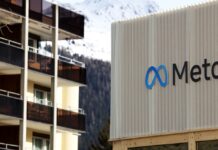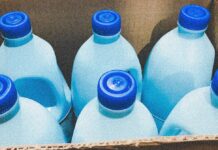21:34
Victoria Covid update
Victoria’s Covid commander, Jeroen Weimar, has given an update on the state’s numbers, warning of a rise in cases in regional Victoria, and especially among the “younger cohort”.
Weimar said around 17% of the 1,534 cases recorded yesterday came from the regions, with authorities particularly concerned about a growing outbreak in Albury-Wodonga.
“Let’s be very clear: it is a significant outbreak happening in Wodonga at the moment.
“We have literally hundreds of cases on the Wodonga side of the border and two or three times that number on the Albury side. They are very interconnected communities. We deployed additional testing resources up there last week. We are working closely with a large number of schools impacted with students moving around the community and being positive.
“It does feel like we’re at sort of a plateau at the moment. The plateau is higher than we’d like, but it is … slightly under the Burnett modelling,”
It comes as the state looks to lift restrictions on travelling to the regions from Friday evening.
Weimar was also asked about restrictions on retail settings, with journalists quizzing him about why unvaccinated people are allowed into retail settings.
We would expect any retailer to be able to set an appropriate framework within their environment about who they serve and who they don’t serve. I can’t comment on the legality of measures they can take to ban people from coming in.
It’s a question of timing and giving people enough time and space to get that vaccination job done. We would absolutely discourage anybody who is not vaccinated from going into any of those retail settings.

Updated
21:02
A few more snippets from defence estimates:
- Defence has made a “planning assumption” that the government-funded scheme to support workers who have lost jobs under the French submarine plans will need to last six years from now. The sovereign shipbuilding talent pool is assumed to need an “initial funding envelope that will cover six years”, officials say.
- It’s unclear when the first nuclear-propelled submarine will be in the water. The defence secretary, Greg Moriarty, says “we haven’t provided an earliest date of entry” to government, but would “hope to have the first” one in the water earlier than the 2040s.
- The defence minister, Peter Dutton, phoned his French counterpart on 15 September, the day before the Aukus announcement, and “conveyed the government’s decision”, Moriarty says.
- The chief of the defence force, General Angus Campbell, adds: “I spoke to my [French] counterpart on the day of the trilateral announcement, 16 September, after the announcement.” Asked if a decision was made to only do this call after the announcement, Campbell says: “Yes, senator.”
21:01
New Zealand announces 74 new cases of Covid
New Zealand has announced 74 new cases of Covid-19 today, bringing the total number in the outbreak to 2,832.
All of those cases were in the North Island, with 68 in Auckland and six in Waikato.
Covid-19 response minister Chris Hipkins said while cases were mainly in Auckland for now, more cases popping up outside the region were a matter of when, not if.
According to the ministry of health, 87% of eligible New Zealanders (those aged 12 and over) had had at least one dose of vaccine, and 72% had had both.
Hipkins also announced that some restrictions would lift in the Waikato region at midnight tonight: residents would be able to meet other households outdoors, in gatherings of less than 10. Forty-one people are hospitalised with Covid-19, and five are in ICU.
Updated
20:52
Record high petrol price and the highest construction costs for new homes in 21 years have pushed consumer prices higher, the Australian Bureau of Statistics tells us.
The headline index figures were mostly inline with the expectations of economists, coming in at an annual pace of 3% in the September quarter, and 0.8% higher for the July-September period alone.
The focus, though, will likely be on the CPI’s underlying measures, the trimmed mean and weighted median gauges, that strip out volatile movements such as the winding back of free child care during this period a year ago that would distort price changes.
Both of these two measures ticked up to an annual increase of 2.1%, the first time they have been in the 2-3% range that the central bank is targeting since the September quarter in 2015.
Contributing to the higher inflation was the 3.3% jump in the cost of new dwellings, the biggest increase since the September quarter of 2000. Blame supply disruptions for much of that jump.
Those bottlenecks, caused in part by Covid pandemic effects, have also pushed automotive fuel prices to record levels. The 7.1% jump in prices exceeded a similarly advance in the June quarter, with the maximum average daily unleaded petrol price across Australia hitting a record $1.65.
Given electricity prices have been plunging thanks to the spread of renewable energy sources, perhaps it’s time to consider that switch to electric vehicles if you haven’t already made the change.
The shift in inflation into the RBA’s 2-3% stirred investors who pushed the Australian dollar up about one-third of a US cent to above 75.3 US cents.
Bond markets also pushed yields on Australian debt higher.
Both moves indicated markets are anticipating the RBA will have to lift its cash rate a bit sooner than they were expecting just prior to the release of today’s CPI data.
Updated
20:25
An update on jobs for workers who have been affected by the dumping of the French submarine contract.
Defence officials say, so far, 286 employees of Naval Group Australia and Lockheed Martin Australia have applied for new jobs under a government program. So far, however, only 13 formal offers have been made to those applicants for new jobs (11 of those people have accepted). Defence officials are at pains to say these people have not lost their jobs as yet (in playing down the fact acceptance levels are so low so far).
“There’s a process that they will work through,” Tony Dalton, a deputy secretary at defence, says. “We are still working with both companies on a transition-out plan.”
20:22
Daniel Andrews says Victoria will not apply for exemptions for unvaccinated tennis players
Australian Open: Victorian premier Daniel Andrews held a quick doorstop press conference, where it appears he’s closed the door on allowing unvaccinated tennis players into the state.
Andrews was adamant his government will not be providing any exemptions for unvaccinated players, saying he didn’t want to add to the workload of frontline workers:
Let’s be very clear about this, I agree with what Alex Hawke has to say about unvaccinated players not being allowed in. What I want to make very clear is that the state of Victoria will not be applying for any exemptions for unvaccinated players.
He also fired shots at the federal government, saying their position had changed, after immigration minister Alex Hawke had earlier said unvaccinated players would be barred from Australia.
“Our health advice is that when we open the borders, everyone that comes to Australia will have to be double-vaccinated.”
But soon after, federal health minister Greg Hunt contradicted him, saying it was up to the state to apply for exemptions to allow unvaccinated people into the country for work.
If a state is seeking an exemption for somebody to come in for a workplace program or a similar event and they are not vaccinated, they can come in if that state seeks it.
They are subject, however, to two weeks of quarantine and that’s without fear or favour. It is entirely a matter for the state or states working with Tennis Australia.
Andrews was not impressed:
The federal government manages the border and to the extent that anything the federal government says on this is clear, because their position has gone 180 from what [the] immigration minister said, which at the time, I agreed with.
Updated










